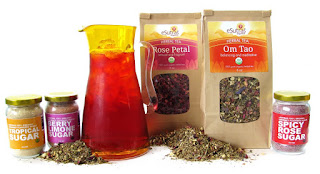NO Microwave for Good Tea!! - Why?
Because a proper cup of black tea must be made with water that’s come to a rolling boil. A kettle is designed to heat water evenly to 212 degrees Fahrenheit. Heat at the bottom of the kettle—whether from a heating element embedded in an electric device or from a burner on the stove—creates a natural convection current: The hot water rises and the cool water falls in a cyclical fashion, which uniformly heats the contents of the kettle to a boil (at which point an electric kettle clicks off or a stove top kettle whistles).
But microwaves don’t heat water evenly, so the boiling process is difficult to control. Microwave ovens shoot tiny waves into the liquid at random locations, causing the water molecules at those points to vibrate rapidly. If the water isn’t heated for long enough, the result is isolated pockets of very hot or boiling water amid a larger body of water that’s cooler.
 Why is water temperature so important to good-tasting tea? When tea leaves meet hot water, hundreds of different compounds that contribute flavor and aroma dissolve and become suspended in the water. Black tea contains two kinds of complex phenolic molecules, also known as tannins responsible for the color and the astringent, brisk taste of brewed black tea, and they are extracted only at near-boiling temperatures.
Why is water temperature so important to good-tasting tea? When tea leaves meet hot water, hundreds of different compounds that contribute flavor and aroma dissolve and become suspended in the water. Black tea contains two kinds of complex phenolic molecules, also known as tannins responsible for the color and the astringent, brisk taste of brewed black tea, and they are extracted only at near-boiling temperatures.
Water also cooks certain volatile compounds, chemically altering them to produce more nuanced flavors and aromas, such as the earthy, malty, and tobacco notes in black tea. When the water isn’t hot enough to instigate these reactions and produce these bold flavors, tea tastes insipid.
Microwaved water isn’t totally useless for all tea. In fact, water that’s microwaved to below boiling is ideal for green tea. The mellow, brothy flavors prized in green tea are mostly derived from specific savory-tasting amino acids that start to dissolve at 140 degrees. With green tea, boiling water extracts too many astringent notes and too much bitter caffeine that would overwhelm the delicate amino acids. Caffeine is extremely soluble at 212 degrees, but significantly less so at 145 to 175 degrees, the ideal temperature range for brewing green tea.....
Article taken from Food Explainer -thanks Lou Bloomfield of the University of Virginia, Skip Rochefort of Oregon State University, and tea expert Bruce Richardson; Nadia Arumugam is a New York City-based food writer and contributer to Forbes.com

Comments
Post a Comment